
Overview
Leafy green vegetables are among the most nutrient-dense foods on the planet. Loaded with vitamins, minerals, fiber, and antioxidants, they offer numerous health benefits that can improve your overall well-being. From supporting heart health to strengthening bones, these vegetables are essential for a balanced diet. In this article, we’ll explore the best leafy green vegetables, their unique health benefits, and how they contribute to your body’s nutritional needs.
1. Spinach
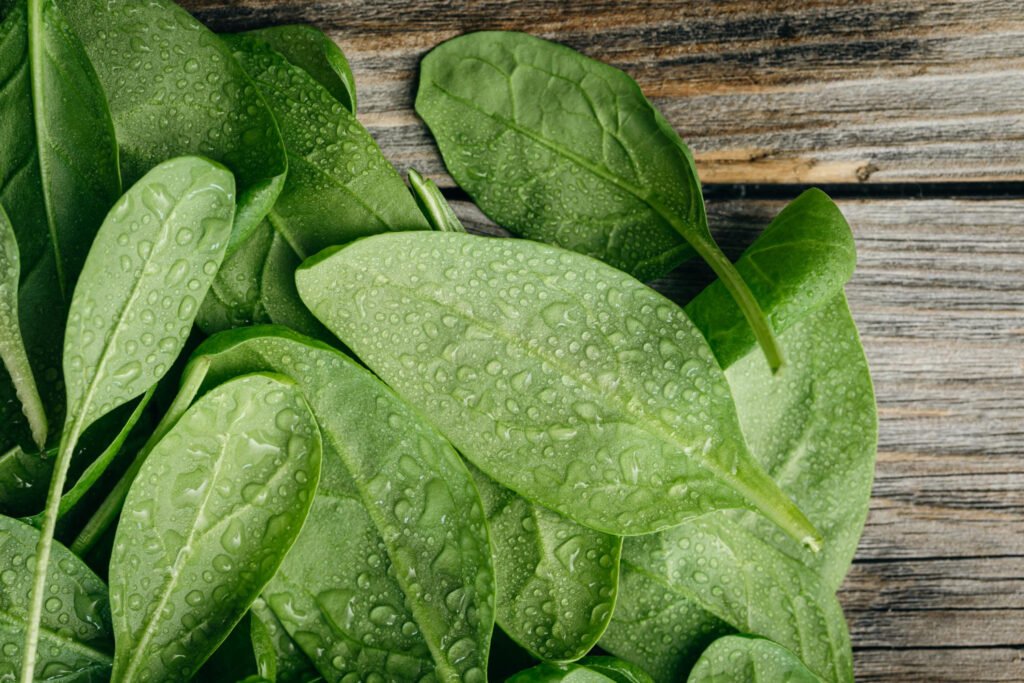
Spinach is a highly nutritious leafy green that offers a variety of vitamins and minerals. It is particularly high in iron, calcium, magnesium, and vitamins A, C, and K.
- Bone Health: Spinach is rich in vitamin K, which plays a crucial role in maintaining bone strength and preventing fractures.
- Eye Health: Lutein and zeaxanthin, two antioxidants found in spinach, help protect the eyes from oxidative damage and reduce the risk of age-related vision issues.
- Heart Health: Spinach contains nitrates, which may help lower blood pressure and improve overall cardiovascular function.
2. Kale
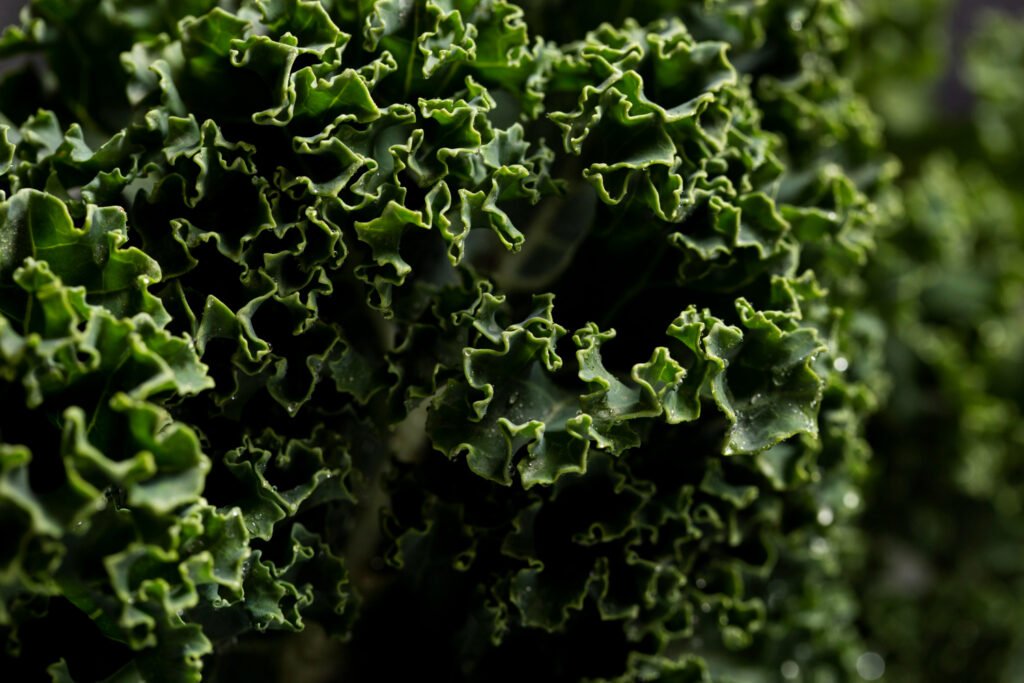
Kale is often regarded as one of the healthiest greens available. It is loaded with vitamins A, C, and K, as well as various antioxidants that provide numerous health benefits.
- Detoxification: The sulfur compounds in kale support the body’s detoxification processes, particularly in the liver.
- Cancer Prevention: Kale contains powerful antioxidants like quercetin and kaempferol, which have anti-inflammatory properties and may help prevent certain types of cancer.
- Skin Health: The high vitamin C content in kale supports collagen production, helping to maintain skin elasticity and reduce wrinkles.
3. Swiss Chard

Swiss chard is a leafy vegetable known for its bright-colored stems and high nutrient content. It is rich in vitamins A, C, and K, as well as magnesium and potassium.
- Blood Sugar Control: Swiss chard contains flavonoids like syringic acid, which may help regulate blood sugar levels.
- Heart Health: With its high fiber content, Swiss chard promotes heart health by helping lower cholesterol levels and supporting healthy blood pressure.
- Bone Health: Like many leafy greens, Swiss chard is high in calcium and vitamin K, both essential for maintaining strong bones.
4. Arugula
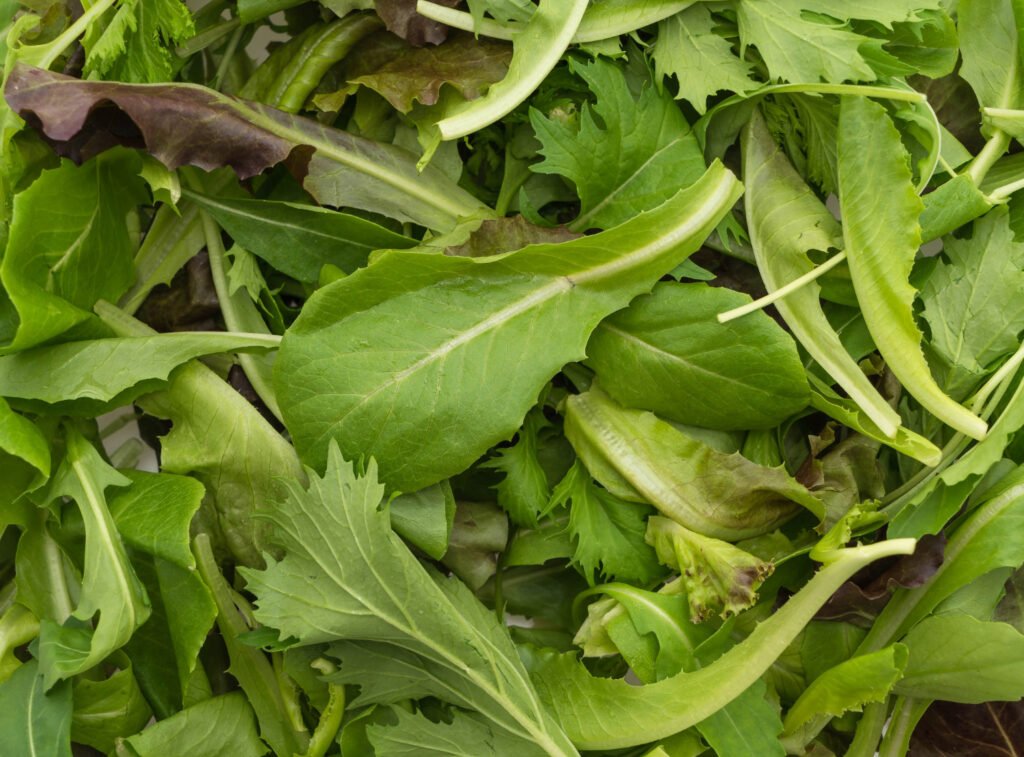
Arugula, also known as rocket, has a distinctive peppery flavor and is packed with vitamins and minerals. It is rich in vitamins A, C, and K, along with folate and calcium.
- Bone Strength: Arugula’s high vitamin K content supports bone density and helps prevent osteoporosis.
- Digestive Health: The fiber in arugula promotes healthy digestion and prevents constipation.
- Immune Support: Arugula’s antioxidant-rich profile helps boost the immune system and reduce inflammation in the body.
5. Collard Greens
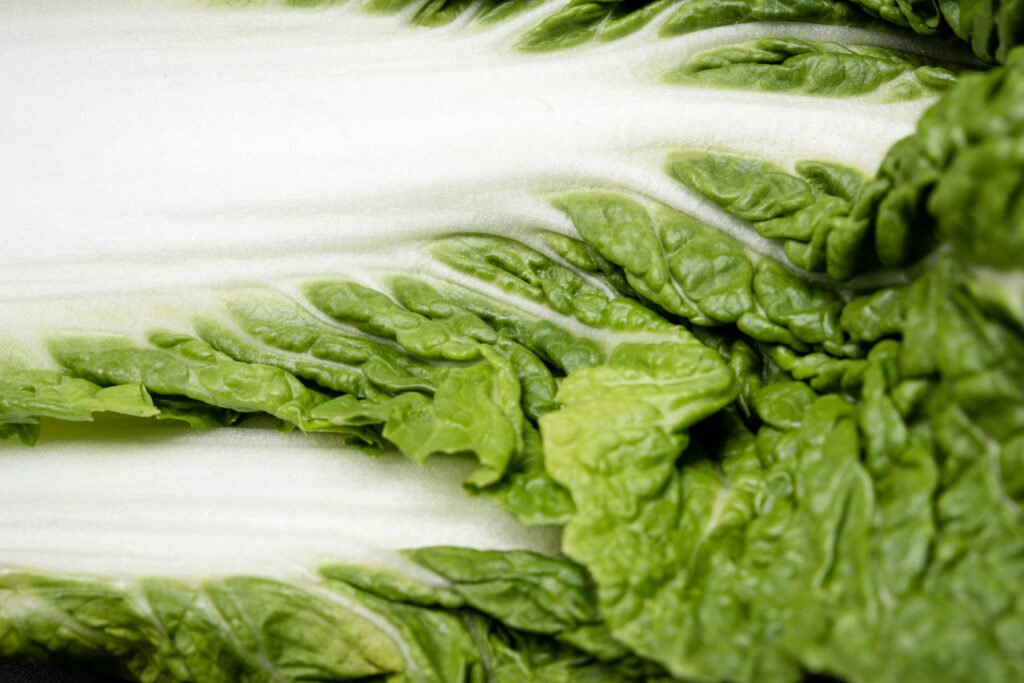
Collard greens are a staple in Southern cooking and are packed with nutrients like vitamins A, C, and K, along with fiber and calcium. They have a slightly bitter taste and are commonly cooked rather than eaten raw.
- Digestive Health: The high fiber content in collard greens supports digestive health and helps prevent constipation.
- Detoxification: Collard greens contain sulfur compounds that support the liver’s detoxification processes.
- Cancer Protection: The glucosinolates in collard greens may help reduce the risk of cancer by supporting the body’s natural detoxification mechanisms
Related: Raw vs. Cooked Vegetables Health Benefits and Differences
6. Romaine Lettuce

Romaine lettuce is a popular leafy green, especially in salads. It’s low in calories but rich in vitamins A, C, and K, as well as folate and fiber.
- Heart Health: Romaine lettuce contains potassium, which helps regulate blood pressure and support cardiovascular health.
- Weight Management: With its low-calorie and high-water content, romaine lettuce is a great choice for those looking to manage their weight.
- Skin Hydration: The high water content in romaine lettuce helps keep skin hydrated and supple.
7. Bok Choy

Bok choy is a popular vegetable in Asian cuisine and is rich in vitamins C, A, and K, as well as calcium and magnesium. Its mild flavor makes it a versatile addition to various dishes.
- Bone Health: The calcium and vitamin K in bok choy help maintain strong bones and prevent osteoporosis.
- Eye Health: The vitamin A in bok choy supports healthy vision and protects against age-related eye conditions.
- Anti-inflammatory Properties: Bok choy is rich in antioxidants, which help reduce inflammation and lower the risk of chronic diseases.
8. Mustard Greens
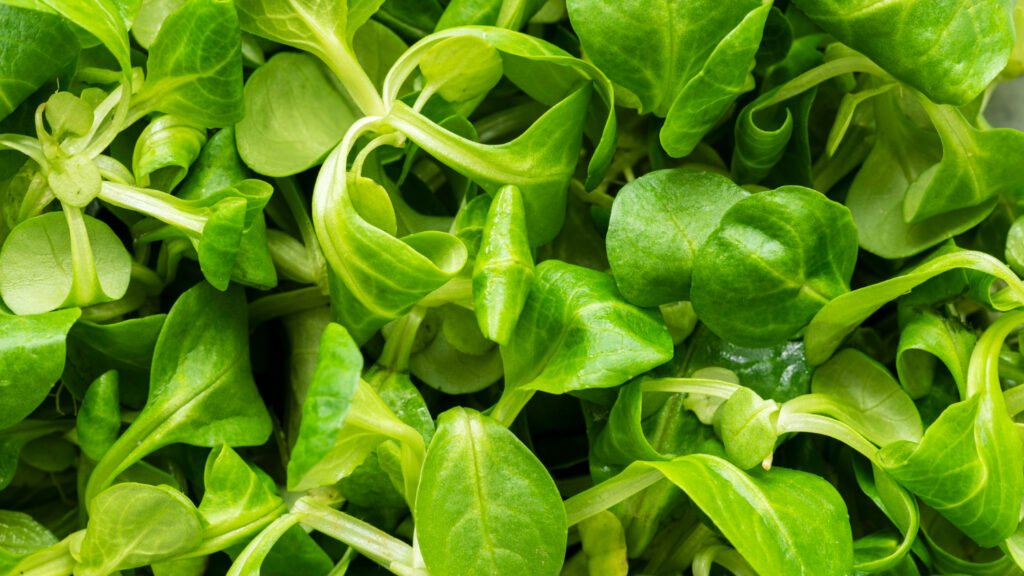
Mustard greens are known for their spicy, peppery flavor and are loaded with nutrients like vitamins A, C, and K, as well as folate and manganese.
- Cancer Prevention: Mustard greens contain glucosinolates, which help detoxify the body and may reduce the risk of certain cancers.
- Detox Support: The sulfur compounds in mustard greens support the liver’s detox processes, helping the body eliminate toxins.
- Heart Health: Mustard greens are high in fiber, which promotes healthy cholesterol levels and supports cardiovascular health.
9. Watercress

Watercress is a lesser-known leafy green that is incredibly nutrient-dense. It is rich in vitamins A, C, and K, as well as calcium and magnesium.
- Bone Health: Watercress is high in calcium and vitamin K, which contribute to maintaining strong bones.
- Cancer Prevention: The antioxidants in watercress, particularly glucosinolates, may help reduce the risk of cancer.
- Immune Support: Watercress is rich in vitamin C, which helps boost the immune system and protect the body from infections.
The Takeaway
Incorporating a variety of leafy greens into your diet can have profound effects on your health. These vegetables provide essential nutrients that support heart health, strengthen bones, protect against chronic diseases, and improve digestion. Whether you enjoy them raw in salads, sautéed, or blended into smoothies, leafy greens are a versatile and delicious way to enhance your diet.
To maximize the benefits, aim to include a variety of leafy greens in your meals throughout the week. By doing so, you’ll be nourishing your body with some of the most powerful foods nature has to offer
Frequently Asked Questions
What are the health benefits of eating leafy green vegetables?
Leafy green vegetables are packed with essential vitamins, minerals, and antioxidants that support overall health. They help improve heart health, strengthen bones, boost immunity, support eye health, aid digestion, and may reduce the risk of certain cancers.
Which leafy green vegetables are best for bone health?
Leafy greens like spinach, kale, Swiss chard, bok choy, and watercress are rich in calcium and vitamin K, both of which are vital for maintaining strong bones and preventing osteoporosis.
Can leafy greens help with weight loss?
Yes, many leafy greens, such as spinach, romaine lettuce, and arugula, are low in calories and high in fiber, making them excellent for weight management. They provide nutrients without adding many calories, helping you feel full and satisfied.
What are some leafy greens rich in antioxidants?
Kale, spinach, and mustard greens are particularly high in antioxidants like lutein, zeaxanthin, and glucosinolates, which help protect the body from oxidative stress and reduce inflammation.
How do leafy greens benefit heart health?
Leafy greens like spinach and Swiss chard contain nitrates, which help lower blood pressure and improve blood flow. Their fiber content also supports healthy cholesterol levels, contributing to overall cardiovascular health.
Can leafy greens help with digestion?
Yes, leafy greens such as collard greens, arugula, and romaine lettuce are high in fiber, which aids digestion by promoting healthy bowel movements and preventing constipation.
How should I incorporate more leafy greens into my diet?
You can add leafy greens to your diet by including them in salads, smoothies, stir-fries, soups, or as a side dish. Try incorporating a variety of greens like spinach, kale, and arugula to benefit from their diverse nutritional profiles.











